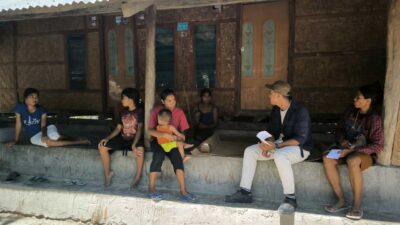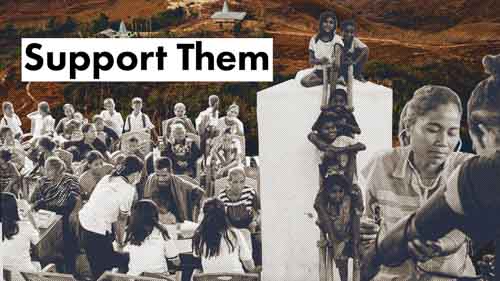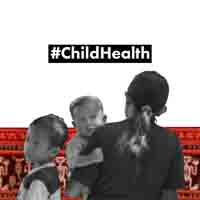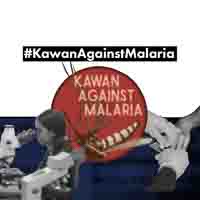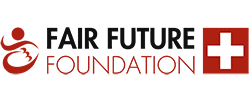Kawan Sehat has stepped in to assist a critically ill 14-year-old girl in remote Indonesia, marking the start of life-saving medical care.
Barriers to healthcare and poverty have left thousands without access to treatment. Kawan Sehat’s intervention has the potential to save a child’s life.
Arniyanti, 14: Fighting the disease and overcoming abandonment: Arniyanti lives in Hudumburung, an isolated village without clean water and electricity and accessing it is frankly very complicated. For ten years, this young girl has lived with a large tumour (Lymphoma or, by chance, just a Lipoma) on the right side of her neck, comparable to the size of a “medium mango”. This mass of a significant size, is located under her lower jaw and extends over her neck. This first tumour, called “main”, is accompanied by three smaller tumours which follow the first and extend over her shoulder and upper body. Despite the seriousness of her condition, she has never received attention and, therefore, has had no medical care until recently, thanks to Veronika (one of the Kawan Sehat agents) and the Fair Future Foundation team.
The deadly duo – Tuberculosis and medical neglect: Hudumburung is a hotbed of tuberculosis, with many cases reported. Arniyanti has been living with an “aunt” for years, who also cares for an elderly woman with the disease, who has TB. Our concerns were confirmed when the Mantoux test indicated Arniyanti was infected with TB after the required waiting period. In this region where infectious diseases spread unchecked, her diagnosis further jeopardizes her already fragile health.
In these remote areas, diseases multiply due to a lack of medical care, infrastructure, and medication; fear often prevails, fear but also a lack of education. Preventive information is minimal or does not reach these remote areas without internet access. As a result, treatment delays are expected, turning each disease into a potentially deadly threat.
Imprisoned by poverty and immobilized by fear, Arniyanti’s parents “abandoned” her due to the potential financial pressure (fear related to lack of information and education) that her treatment could impose. They have even refused for years any medical consultations and forbidden a potential surgery! With seven other children to support, their extreme poverty made seeking medical assistance for Arniyanti unimaginable. In these parts, Arniyanti’s family’s situation and all that comes with it are not isolated, far from it; in fact, they are very common.
“No child should suffer in silence, especially not for ten years. We take action to bring care and hope to those who need it most.” — Alex Wettstein, CEO & Founder of Fair Future Foundation
Convincing Arniyanti’s parents to allow our intervention has proven to be a considerable challenge. We have tried communicating with them, but they do not seem to listen or understand. Language is not a barrier as we speak the local language. It appears that they are reluctant to take our advice into account due to their social and medical difficulties. They cannot afford to go to the hospital, leaving them isolated and trapped in extreme poverty without access to necessary medical care.
Continued efforts to address outstanding issues: Although Arniyanti has not yet been admitted to the hospital, our team manages her case. Medical facilities here operate with outdated infrastructure and little equipment. Initial medical tests have revealed worrying abnormalities, including in her blood tests, which showed significant discrepancies in lymphocyte levels and other crucial markers. An X-ray was also done; we expect the results tomorrow, 18.10.2024. Further medical tests are also scheduled tomorrow to determine the cause of her condition and establish an appropriate treatment plan.
Difficulties accessing healthcare in remote areas: In villages like Hudumburung, access to healthcare is very limited. No nearby hospitals or medical centres (Puskesmas) exist, and essential medicines are often unavailable. Families https://fairfuturefoundation.org/?swp_form%5Bform_id%5D=5&swp_tax_limiter%5Bcategory%5D=&s=lack+medical+knowledge and resources to deal with health issues. Every sick child like Arniyanti highlights the shortcomings of a failing healthcare system. Without adequate infrastructure and transportation options, getting medical help becomes an insurmountable challenge. That’s why we launched the Primary Medical Care Program over two years ago, as it has helped save lives and will hopefully save Arniyanti.
Taking steps to break the cycle: We have been helping Arniyanti navigate the complex journey of receiving care, from medical appointments to administrative hurdles, for several days. The lack of identification has made even the simplest tasks difficult, as Arniyanti does not have an ID, a widespread problem in the region. Despite this, we are committed to ensuring she receives the medical care she deserves. This is a battle for her health, a fight against systemic injustice, and the right to medical care for all.
We must not neglect these forgotten people, children and adults. Their silence is a cry for help, and we are responding with practical solutions like the Primary Medical Care Program. Every day without treatment in these areas brings them closer to what could be described as a “threat.”
While Arniyanti’s case is now receiving the attention she deserves, many others remain hidden—lost to illness, poverty, and social, medical, and educational isolation. We will continue to fight for Arniyanti and every child like her who deserves proper care and a chance at a better future. No child should suffer in silence—certainly not for ten years.
Thank you for your interest and support. Today, October the 17th, 2024 – Alex Wettstein
Why Primary Medical Care is Essential and Life-Saving?
The Primary Medical Care program is crucial in providing life-saving healthcare to remote areas without other medical resources. Trained Kawan Sehat health agents work diligently to prevent minor injuries and illnesses from escalating into fatal conditions by offering immediate care, first aid, and essential health education.
Without this program, thousands of people like Arniyanti would be deprived of access to medical treatment. Sustaining this program is imperative to ensure that these vulnerable communities have continuous access to healthcare.



